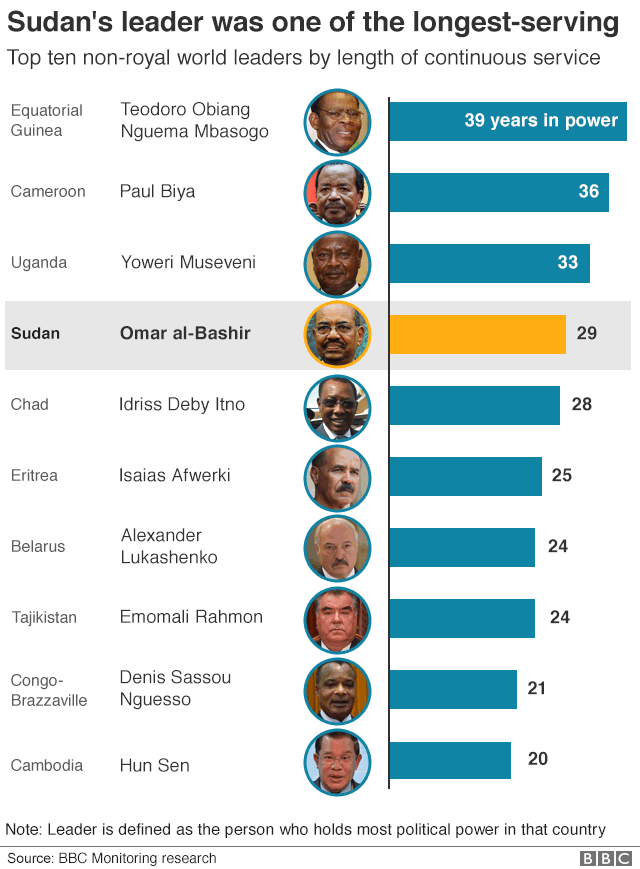- Speaking on state TV, Awad Ibn Ouf said the army had decided to oversee a two-year transitional period followed by elections.
He also said a three-month state of emergency was being put in place.
Protests against Mr Bashir, who has governed Sudan since 1989, have been under way for several months.
- Mr Bashir is the subject of an international arrest warrant issued by the International Criminal Court (ICC), which accuses him of organising war crimes and crimes against humanity in Sudan's western Darfur region.
- This is a military coup with no clear roadmap for how the generals plan to hand over power to civilian rule.
The fear will be that they have no such intention. The security elite has calculated that removing Omar al-Bashir and imposing a curfew will buy them time and end the protests. If so this represents a serious miscalculation.
The Sudanese Professionals Association - which has spearheaded the demonstrations - and other civil society groups have made it clear they won't accept a cosmetic change. They have the numbers and are highly organised.
The military has the guns and the capacity for imposing brutal repression. But what then? A crackdown will not resolve the desperate economic crisis that brought years of simmering resentment on to the streets last December.
There is also the question of the cracks within the Sudanese security establishment, evident during the clashes between soldiers and intelligence/militia forces in recent days. It is a volatile and unpredictable situation that demands cool heads and compromise on the part of the military. The stability of Sudan depends on how they react to continued protests.
